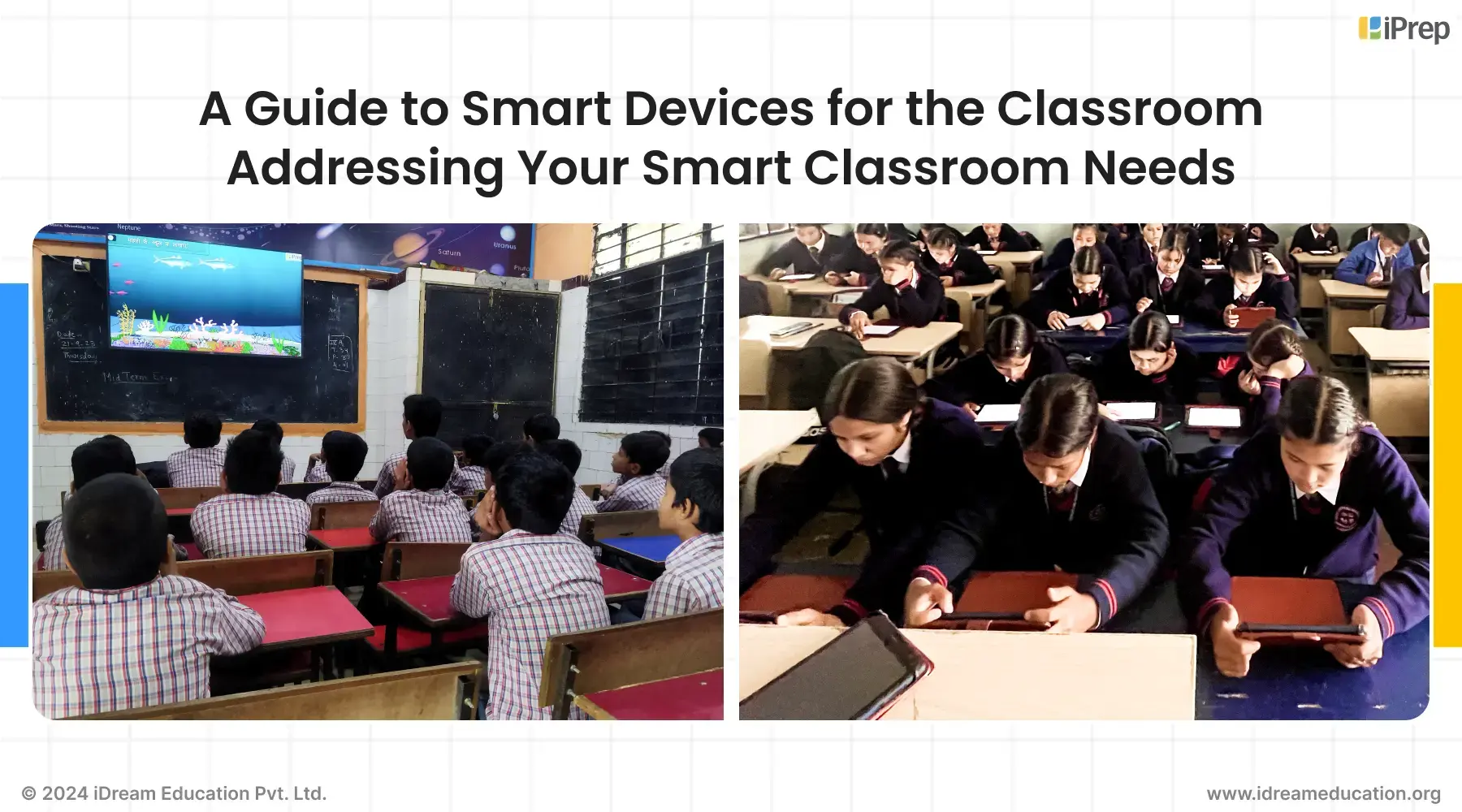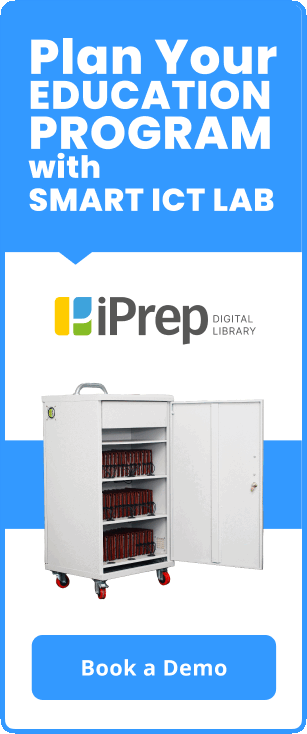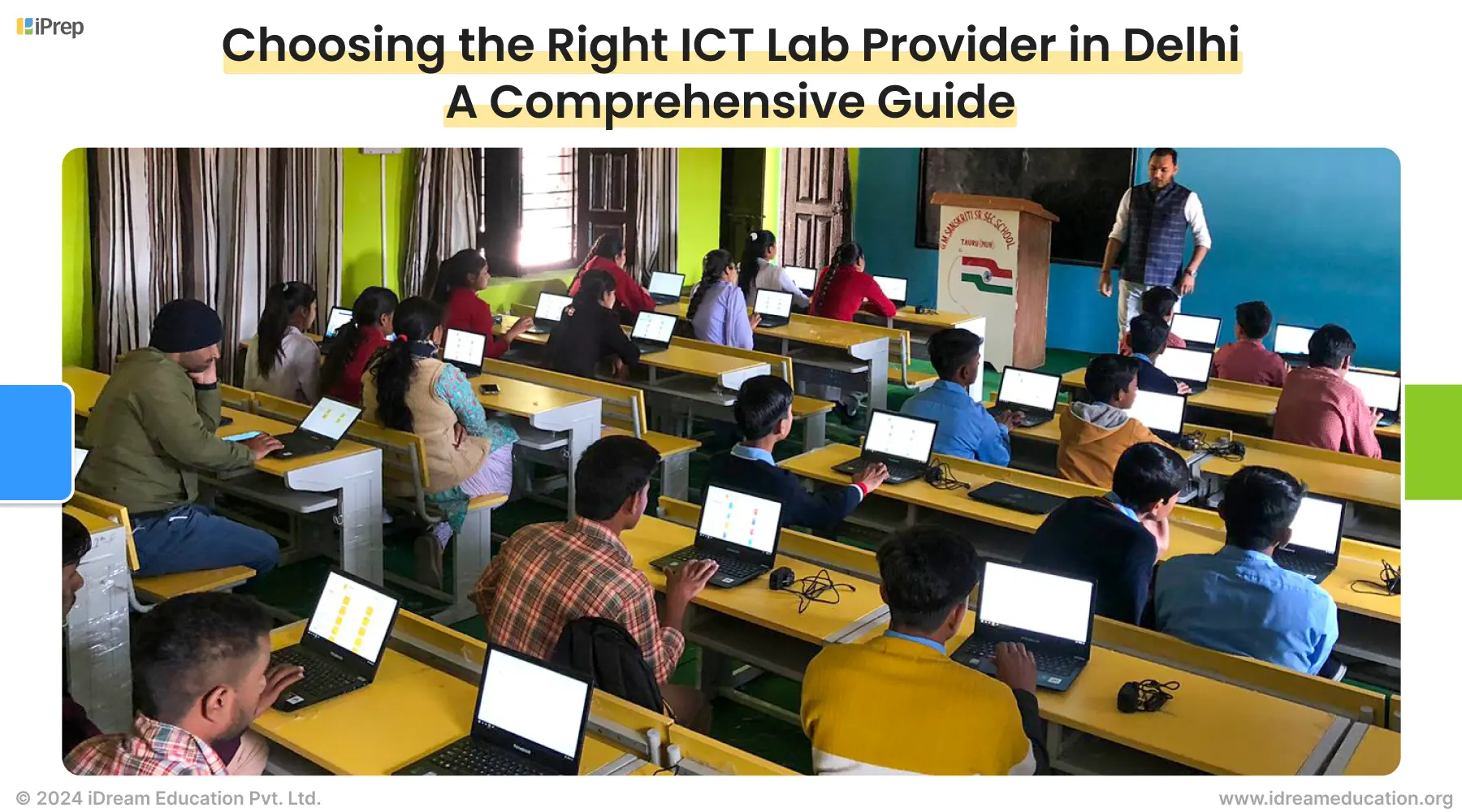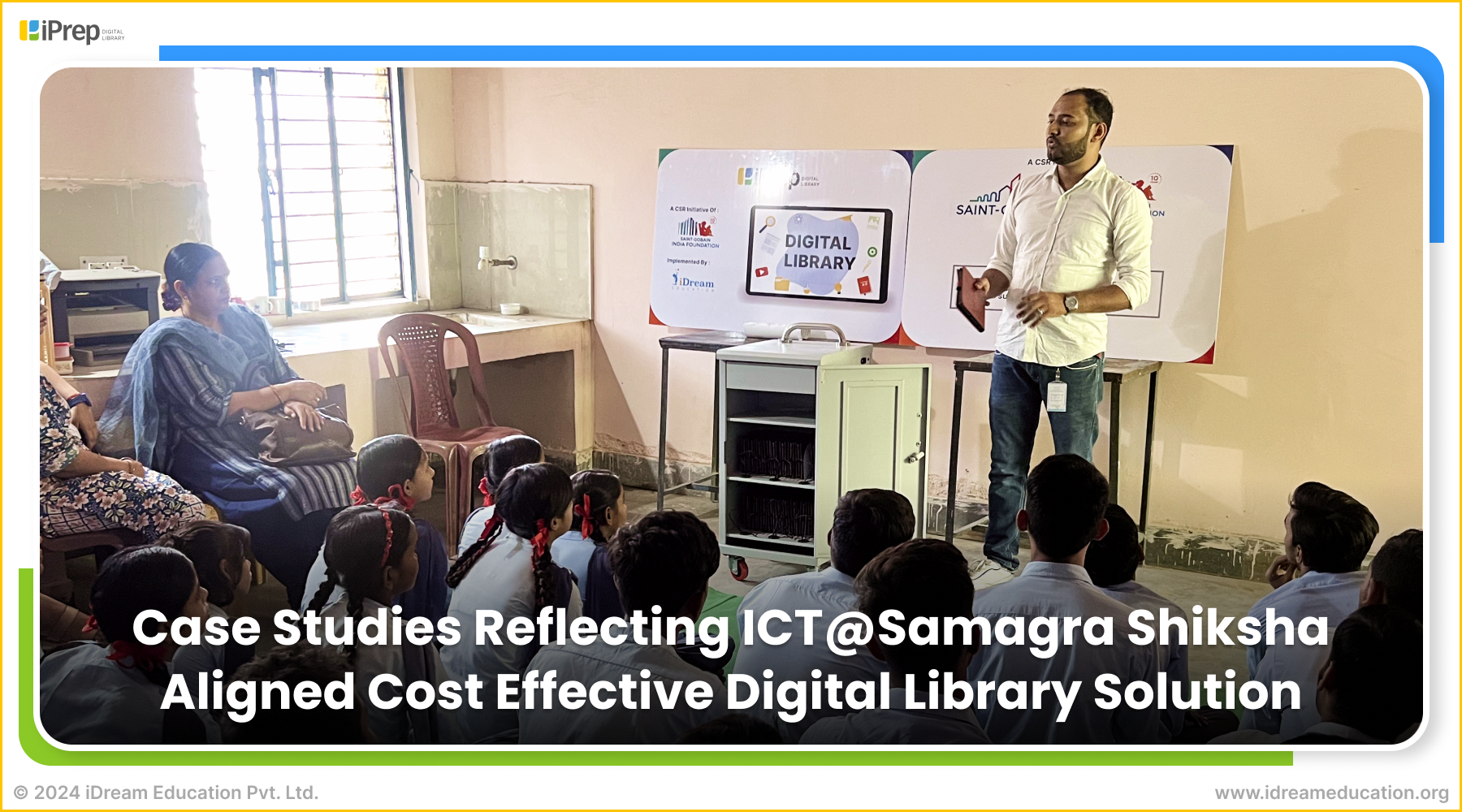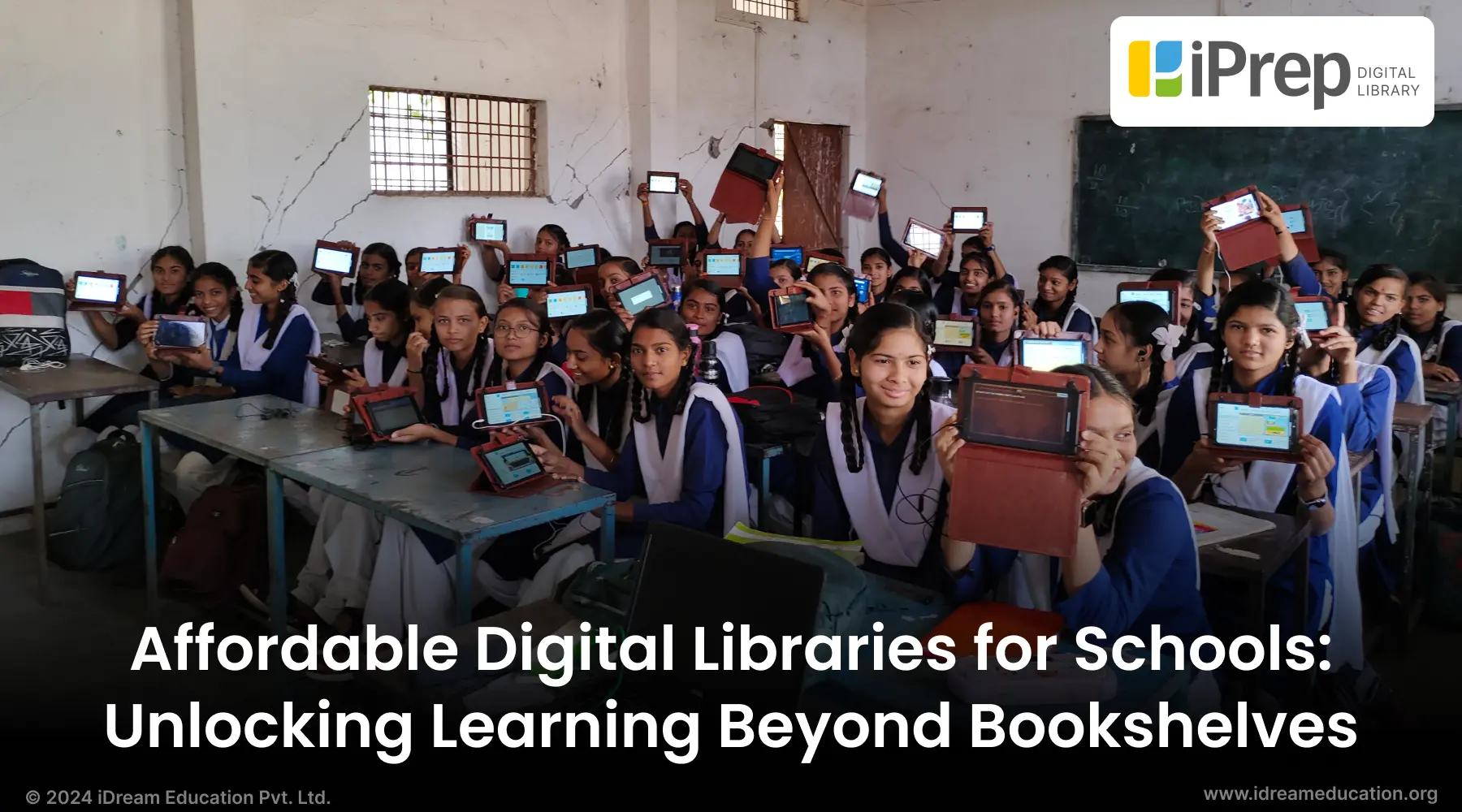Learning Labs in Schools: Outlining Their Benefits & Scope
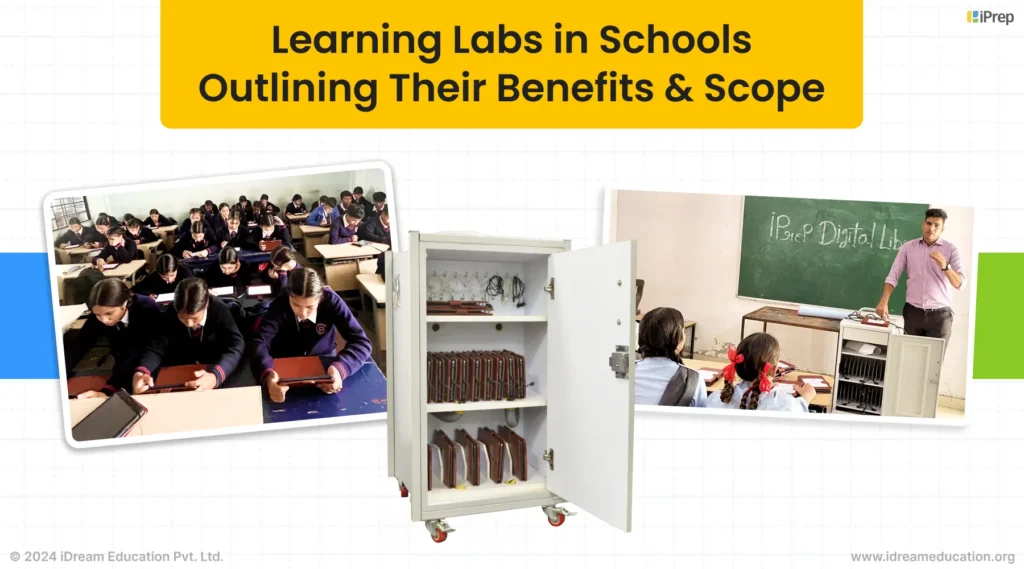
Learning Labs have emerged as dynamic spaces that serve as hubs for interactive, hands-on learning, fostering a more engaging educational environment. More than just a technological leap, learning labs in schools embody a response to the evolving needs of students as well as the demands of a rapidly changing world.
The benefits of implementing learning labs in school environments are many, as will be evident in the following sections. But first, let us have a better understanding of what a learning lab is and why it is significant.
What is a Learning Lab?
A learning lab, variously known as a digital library, study lab or educational lab, is a physical or virtual space designed to facilitate hands-on learning experiences and experimentation. It typically consists of various resources, tools, and equipment tailored to specific educational objectives and subject areas.
In a physical learning lab, you might find computers, tablets, interactive whiteboards, educational software, laboratory equipment, and manipulatives. In a virtual or online learning lab, the setup may include online platforms, simulations, virtual reality tools, digital libraries, and interactive multimedia content. Learners can access these resources remotely via computers, tablets, notebooks or other internet-enabled devices.

Why are Learning Labs in schools significant in India?
In March 2019, the Ministry of Education implemented a novel approach to ICT integration in schools in India by introducing a variety of technology tools for classrooms. This included tablets, laptops, notebooks, and a charging rack, all of which played a crucial role within the revamped ICT lab scheme.
The initiative was part of the Samagra Shiksha program, aiming to harness the potential of digital education through progressive technologies such as ICT labs or learning labs, digital boards, and personalized adaptive learning solutions. Through the Samagra Shiksha Abhiyan, the Ministry of Human Resource Development sought to align with the objectives of the National Education Policy (NEP), working towards the integration of modernized and fully equipped ICT labs in schools.
What are the benefits of implementing Learning Labs in Schools
Learning labs offer numerous advantages for schools, including:
Enhanced Learning Outcomes
Learning labs in schools provide students with access to interactive technologies and hands-on learning experiences that can enhance their understanding and retention of academic concepts. By engaging students in active learning, these ICT labs can improve overall learning outcomes and academic achievement.
Increased Engagement and Motivation
Learning labs offer a dynamic and interactive learning environment that can increase student engagement and motivation. By incorporating multimedia content, simulations, and interactive activities, these labs make learning more enjoyable and relevant for students.
Community Engagement and Collaboration
Learning labs in schools can serve as hubs for community engagement, providing opportunities for schools to partner with parents and community organizations.
Preparation for the Future
Learning labs help students develop essential digital literacy skills and familiarize them with emerging technologies. By providing hands-on experience with technology and digital tools, schools can prepare students for success in an increasingly technology-driven world.
Let’s delineate further how e learning labs can be useful for students and teachers.

Benefits of Learning Labs for Students
Hands-on learning experiences
Learning labs or study labs offer students opportunities to interact directly with educational materials through experiments, simulations, and manipulative activities. This hands-on approach allows them to explore concepts in depth and gain practical skills.
Collaboration and communication
Working in groups within the lab setting encourages students to communicate effectively, share ideas, and solve problems together. Collaborative projects foster teamwork skills and help students learn from their peers, preparing them for collaborative work environments in the future.
Personalized learning
ICT labs can accommodate diverse learning styles and preferences, allowing students to engage with content in ways that suit their individual needs. Whether through self-paced modules, interactive software, or differentiated activities, students can tailor their learning experience to maximize their understanding and success.
Dynamic learning environment
E learning labs in schools provide an engaging and interactive space where students can explore, experiment, and discover. With access to a variety of materials and resources, students are encouraged to ask questions, think critically, and explore their interests, fostering a love for learning that extends beyond the classroom.
Real-world application
Many activities within digital educational labs are designed to simulate real-world scenarios, allowing students to apply their knowledge and skills in practical contexts. Whether conducting science experiments, designing engineering projects, or analyzing data, students gain valuable experience that prepares them for future academic and professional pursuits.
What are the advantages of Learning Labs for teachers?
Enhanced Teaching Methods
Learning labs provide teachers with innovative tools and resources to deliver dynamic and interactive lessons. They can incorporate multimedia content, simulations, and hands-on activities to engage students and facilitate deeper understanding of concepts.
Differentiated Instruction
With access to a variety of learning materials and technologies, teachers can tailor instruction to meet the diverse needs of their students. ICT labs allow for individualized learning paths, enabling teachers to provide personalized support and enrichment based on students’ abilities and interests.
Data-Driven Instruction
Online labs often include tools for assessing student progress and understanding. Teachers can use data gathered from lab activities, assessments, and student interactions to inform their instructional decisions, identify areas for intervention or enrichment, and track student growth over time.
Professional Development Opportunities
Working in a learning lab environment can provide teachers with opportunities for professional growth and collaboration. They can learn new instructional strategies, explore emerging technologies, and share best practices with colleagues, ultimately enhancing their teaching skills and effectiveness.
Increased Engagement and Motivation
By leveraging interactive technologies and hands-on experiences, learning labs can increase student engagement and motivation in the classroom. Teachers can capitalize on students’ natural curiosity and enthusiasm for learning, creating a positive and dynamic learning environment that fosters academic success.
Now that we have made a compelling case for the incorporation of digital learning labs into school education let’s explore the physical requirements to set up one.
Hardware Components of Learning Labs
Essential learning lab equipment involves:
Tablets
Tablets are vital tools in digital Learning Labs, offering portability and interactivity. They grant access to various digital resources and educational apps.
Laptops/Notebooks
Laptops and notebooks complement the lab setup by offering students a more traditional yet versatile computing experience.
Desktop Computers/PCs
Desktop computers or personal computers (PCs) serve as essential hardware components, particularly in STEM-focused labs. These devices provide a more traditional computing setup with a separate monitor, keyboard, and CPU.
Charging Racks
Charging racks ensure devices are always powered and accessible, accommodating multiple tablets simultaneously.
Smart Boards
Smart Boards enhance the lab environment by transforming traditional whiteboards into interactive and dynamic learning tools.
Webcams/Microphones
Webcams and microphones enable virtual interactions and online collaboration, supporting blended learning approaches in modern labs.
iPrep Digital Library: A Smart ICT Learning Lab for Schools
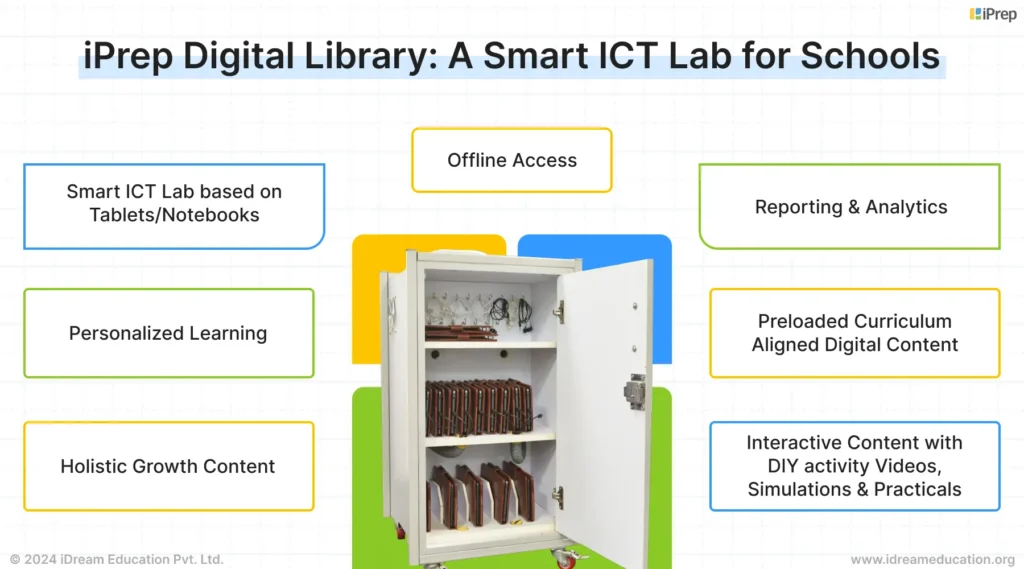
The iPrep Digital Library by iDream Education is an intuitive and easily maintainable Smart ICT Lab based on Tablets/Notebooks. Unlike traditional computer setups, the iPrep Digital Library only requires tablets with a charging rack, eliminating setup and maintenance hassles. Running on the Android OS, these tablets offer cost-effectiveness and user-friendliness akin to smartphones.
The iPrep digital library for schools offers tablets with preloaded digital learning content for students from classes 1st to 12th, including video lessons, practice with instant feedback, class notes in PDF format, practical videos, and holistic growth content. Additionally, interactive lessons feature DIY activity videos and life skills videos, enabling teachers to conduct engaging sessions. The tablets capture and record detailed usage data, which auto-syncs with the central project reporting dashboard. This data allows for monitoring tablet usage, student mastery levels, and personalized instruction planning by teachers.
Designed to supplement conventional classrooms and libraries, the iPrep Digital Library serves as an immersive learning environment, encompassing an English Lab, Language Lab, STEM Lab, Science Lab, Math Lab, and Smart ICT Lab all in one. This innovative approach elevates digital libraries to a more personalized, interactive, and data-driven teaching and learning experience.
Types of Learning Labs
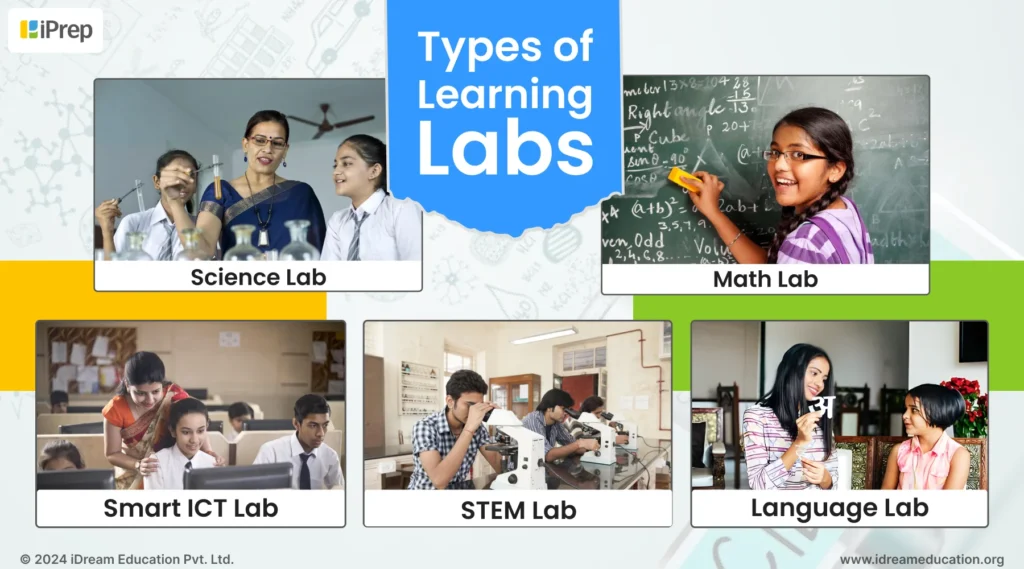
The concept of Learning Labs in schools has evolved to encompass a multifaceted array of specialized learning environments, each meticulously designed to cater to specific educational requirements and learning objectives. Among these innovative learning environments, iDream Education’s offering- iPrep digital library, facilitates the incorporation of all the various types of labs into a single solution.
Language Labs
These Labs cater to the broader spectrum of linguistic skills. Interactive lessons, pronunciation exercises, and language immersion activities contribute to a comprehensive language-learning experience. iPrep offers interactive multimedia content, including audio recordings, videos, and interactive presentations, to facilitate language learning through a blended approach involving listening, speaking, and pronunciation practice.
STEM Labs
STEM Labs, a crucial component of Learning Labs, focuses on Science, Technology, Engineering, and Mathematics education. These labs provide hands-on experiences, experiments, and simulations, cultivating a deep understanding of STEM concepts. Learning Labs designed for STEM education promotes critical thinking, problem-solving, and creativity, preparing students for the challenges of a technologically driven world.
Science Lab
The Science lab offers a dedicated space for conducting experiments and investigations, providing students with a hands-on approach to scientific concepts. iPrep’s simulations and virtual experiments allow students to conduct scientific experiments in a virtual environment, providing hands-on experience. Interactive lessons feature engaging multimedia elements such as videos, animations, and interactive diagrams to explain complex scientific concepts in an easy-to-understand manner.
Math Lab
Through the integration of digital resources, interactive modules, and real-world problem-solving activities, students develop a strong foundation in mathematical concepts. Math simulations on iPrep provide interactive environments where students can explore mathematical concepts through experimentation and observation. These simulations help students develop a deeper understanding of mathematical principles by seeing how variables interact and affect outcomes.
Smart ICT Lab
The Smart ICT Lab represents the pinnacle of technology within Learning Labs. Equipped with state-of-the-art hardware such as tablets, laptops, smart boards, and charging racks, Smart ICT Labs fosters a technology-rich environment.
Tinkering Labs
A tinkering lab or innovation lab, is a dedicated space with tools and resources for experiential learning and creative exploration. These labs are designed to encourage experimentation, innovation, and problem-solving skills among young learners. These activities often involve STEM (Science, Technology, Engineering, and Mathematics) concepts but can also incorporate elements of art and design.
Let’s Conclude
In conclusion, learning labs have become vital spaces in schools, offering dynamic environments for addressing the evolving needs of students. The benefits of learning labs are numerous, including enhanced learning outcomes and increased engagement among students. The incorporation of digital learning labs into school education represents a significant shift towards personalized, interactive, and data-driven education.
Equipped with advanced hardware components Learning Labs provide a truly immersive learning environment. Additionally, the associated benefits, such as flexibility, engaging multimedia resources and immediate feedback contribute to a dynamic and effective education.
As schools increasingly adopt Learning Labs, students gain access to an engaging, collaborative, and technology-driven educational setting.
Frequently Asked Questions -
1. What is a learning lab?
A learning lab serves as a dynamic space, whether physical or virtual, meticulously designed to facilitate hands-on learning experiences and experimentation. It's equipped with an array of resources and tools finely tuned to cater to specific educational objectives across various subject areas. By providing students with opportunities for active participation and exploration, learning labs aim to deepen understanding and foster critical thinking skills essential for success in today's ever-evolving world of education and beyond.
2. What is the purpose of a learning lab?
The overarching purpose of a learning lab is to engender interactive and immersive learning experiences that transcend traditional classroom boundaries. These labs are meticulously crafted to encourage exploration, collaboration, and the practical application of theoretical knowledge to real-world scenarios. By providing an environment conducive to active engagement and experimentation, learning labs empower students to take ownership of their learning journey, fostering a deeper understanding and appreciation for the subjects being studied.
3. What are the benefits of learning labs for schools?
Learning labs offer schools a plethora of benefits that extend far beyond traditional classroom settings. These specialized environments are instrumental in enhancing learning outcomes by providing students with hands-on experiences and opportunities for active engagement. Furthermore, they serve as hubs for fostering collaboration among students and educators, thereby creating a vibrant learning community. Additionally, learning labs prepare students for the future by equipping them with essential skills such as critical thinking, problem-solving, and creativity, essential for success in the 21st century.
4. What are the benefits of learning labs for teachers?
For teachers, learning labs represent invaluable resources for innovation and pedagogical excellence. These dynamic environments offer educators the opportunity to explore innovative teaching methods and experiment with different instructional strategies tailored to meet the diverse needs of their students. Furthermore, learning labs provide teachers with access to rich data insights, enabling them to make data-driven decisions and tailor their instruction to better meet the needs of individual students. Additionally, these labs serve as platforms for professional development, empowering teachers to continuously refine their craft and stay abreast of emerging trends in education.
5. What are the benefits of learning labs for students?
The benefits of learning labs for students are manifold, including enhanced engagement, deeper understanding, and preparation for real-world challenges. Through hands-on experiences and interactive activities, students are able to actively engage with course material, fostering a deeper understanding and retention of key concepts. Furthermore, learning labs provide opportunities for collaboration and communication, essential skills for success in today's interconnected world. Additionally, these labs enable students to apply theoretical knowledge to practical scenarios, bridging the gap between classroom learning and real-world application.
6. What are the hardware requirements of a learning lab?
Hardware requirements for a learning lab are tailored to support the diverse array of activities and objectives envisioned for the space. Essential hardware may include tablets, laptops, or desktop computers equipped with the necessary software and applications to support instructional goals. Additionally, charging racks ensure that devices remain powered throughout the day, while smart boards, webcams, and microphones facilitate interactive instruction and collaboration. Ultimately, the hardware setup of a learning lab is designed to enhance the learning experience and support the achievement of educational objectives.
7. What is iPrep Digital Library?
iPrep Digital Library is an intuitive and easily maintainable Smart ICT Lab based on Tablets/Notebooks, offering pre-loaded digital learning content for students from classes 1st to 12th. It embodies the essence of a Smart ICT Lab by integrating technology with educational content to create a dynamic and immersive learning environment. Its diverse array of interactive content includes interactive lessons, videos, simulations, DIY tutorials, practice materials, and assessments, all curated to align with curriculum standards and learning objectives. iPrep Digital Library incorporates features such as detailed usage data capture and analytics, allowing educators to monitor students' progress and tailor instruction accordingly. The platform also fosters collaboration and engagement through interactive elements and multimedia resources, catering to diverse learning styles and preferences.


